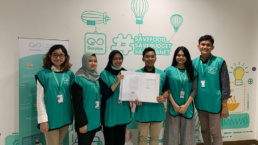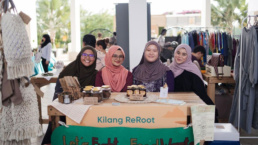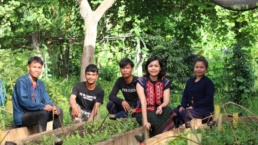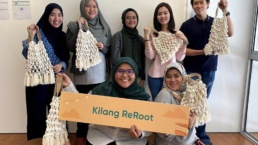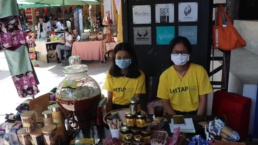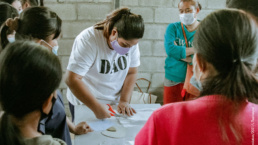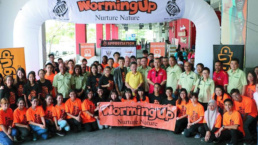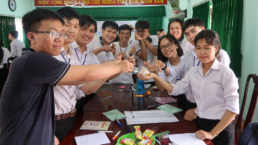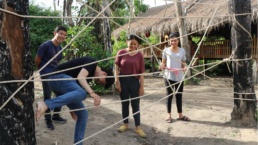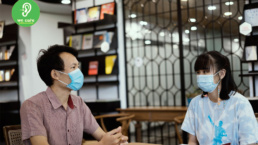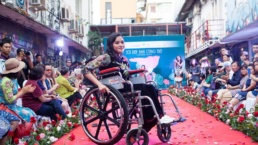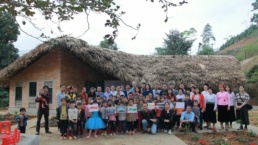About ASEAN Social Enterprise Development Programme
ASEAN Social Enterprise Development Programme (ASEAN SEDP) is a programme by ASEAN Foundation that aims to solve socioeconomic problems and to strengthen the social enterprises ecosystem in the ASEAN region through comprehensive and sustainable support. This programme aims to provide customised capacity building, mentorship and coaching, facilitation to market, and seed funding to youth-led social enterprises in ASEAN.
ASEAN SEDP aims to contribute to the realisation of the ASEAN Economic Community and ASEAN Social Cultural Community Blueprints 2025 and mainly supports the following ASEAN work plans:
- ASEAN Strategic Action Plan for SME Development 2016 – 2025,
- ASEAN Work Plan on Youth 2021 – 2025,
- ASEAN Comprehensive Framework to address the ongoing pandemic by supporting human capital development, promoting MSME digital upskilling and access to the market, and
- UN Sustainable Development Goals (SDGs).
ASEAN SEDP was first implemented by ASEAN Foundation in 2021 with support from GIZ and SAP. Continuing the success of the first programme, ASEAN Foundation is implementing ASEAN SEDP 2.0 with the support of a new partner, TikTok, and SAP to empower social enterprises in ASEAN.
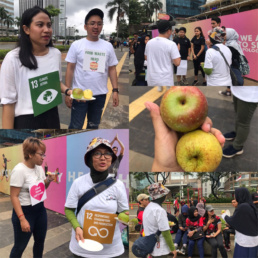
Objective
The ASEAN Foundation with the support of TikTok and SAP is implementing the ASEAN SEDP 2.0 with the following objectives:
1
To empower youth-led social enterprises through product refinement, business model improvement, and mentoring.
2
To contribute to the achievement of United Nations – Sustainable Development Goals.
3
To increase investor access to sources of funding for participating youth-led social enterprises.
4
To engage ASEAN youth-led social enterprises in the national and regional policy-making processes with the key stakeholders.
5
To contribute to one or more than one of the following United Nations – Sustainable Goals (UN – SDGs)
Approach
ASEAN SEDP 2.0 will support youth-led social enterprises in ASEAN region through capacity building, mentorship and coaching, facilitation to market and seed funding. Additionally, the programme will also help the social enterprises to get investors to sustain their impact.
In the implementation of the programme, ASEAN Foundation with the support of TikTok and SAP will select 20 social enterprises that are tackling issues under the following UN-SDGs:
- Reducing poverty or improving the livelihood of ASEAN citizens through job creation, employment- related capacity building initiatives, sustainable agricultural practices, and/or access to financial resources – SDG 1: No Poverty
- Reducing hunger, promoting food security and improved nutrition, promoting sustainable agriculture – SDG 2: Zero Hunger
- Providing access to better health care for ASEAN citizens, particularly disadvantaged communities- SDG 3: Good Health and Well-Being
- Providing or improving access to quality education/capacity development programmes for ASEAN citizens, particularly disadvantaged communities (marginalized groups, women, people living in slum or rural areas, people with disability, ) – SDG 4: Quality Education
- Addressing issues on gender equality in the ASEAN region – SDG 5: Gender Equality
- Promoting sustainable management of water and sanitation – SDG 6: Clean Water and Sanitation
- Promoting access to affordable, reliable, sustainable, and modern energy – SDG 7: Affordable and Clean Energy
- Promoting sustained, inclusive, and sustainable economic growth by helping the poor through social business ventures – SDG 8: Decent Work and Economic Growth
- Building resilient infrastructure, promoting inclusive and sustainable industrialization and foster innovation – SDG 9: Industry, Innovation, and Infrastructure
- Reducing inequalities within the ASEAN region with the inclusion of disabled persons and the person with special skill, by ensuring that no one is left behind – SDG 10: Reduced Inequalities
- Promoting an inclusive, safe, resilient, and sustainable city, including human settlement, transport system, green and public spaces. Safeguarding world’s cultural and natural heritage – SDG 11: Sustainable Cities and Communities
- Addressing environmental issues related to the irresponsible exploration the nature – SDG 12: Responsible Consumption and Production
- Undertaking necessary actions to tackle climate change and its impacts – SDG 13: Climate Action
- Addressing water conservation and sustainable use of ocean, sea, marine resources – SDG 14: Life Below Water
- Addressing the issue of sustainable use of terrestrial ecosystems and forest, land degradation, biodiversity loss – SDG 15: Life on Land
- Promoting peaceful and inclusive societies, providing access to justice and accountable institutions – SDG 16: Peace, Justice, and Strong Institutions
- Addressing the issue of partnerships to support the achievement of SDGs – SDG 17: Partnerships for the Goals


